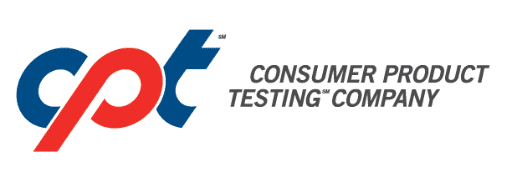1,4-Dioxane is a synthetic industrial chemical that, historically, has been used as a solvent in the synthesis of many types of industrial chemicals. It has also been used as an ingredient in a wide range of products, including electronics, metal cleaners, deicers, degreasers, oils, paints and plastics.
Although 1,4-Dioxane is not an ingredient that is intentionally added to the formulation of cosmetic and personal care products, it has been detected at low levels in many of these products for years. 1,4-Dioxane finds its way into cosmetic and personal care products as a low-level contaminant in certain types of ingredients that are commonly used by the industry. These commonly used ingredients include certain detergents, foaming agents, emulsifiers and solvents identifiable by the prefix “PEG” (polyethylene glycol). 1,4-Dioxane may also be introduced into cosmetic and personal care products from processing aids and manufacturing equipment, such as hoses and gaskets.
Unfortunately, 1,4-Dioxane has become of pressing concern at hazardous waste sites across the United States, finding its way into ground water and ultimately into rivers and even reservoirs. The United States Environmental Protection Agency (US EPA) has issued a summary statement in regard to the growing concern over 1,4-Dioxane, from which the following has been abstracted:
“Acute (short-term) inhalation exposure to high levels of 1,4-Dioxane has caused vertigo, drowsiness, headache, anorexia and irritation of the eyes, nose, throat, and lungs in humans. It may also irritate the skin. Damage to the liver and kidneys has been observed in rats chronically (long-term) exposed in their drinking water. In three epidemiologic studies on workers exposed to 1,4-Dioxane, the observed number of cancer cases did not differ from the expected cancer deaths. Tumors have been observed in orally exposed animals. EPA has classified 1,4-Dioxane as a Group B2, probable human carcinogen.”
Whilst the EPA has declared 1,4-Dioxane to be a potential human carcinogen, there still is no factual evidence as to its long-term effects on human health. As a result, EPA has not included 1,4-Dioxane in its Priority Pollutant List (PPL), which explains why its presence has only recently been confirmed in the area of waste sites and groundwater. In the absence of a more stringent federal regulation, many states have taken it upon themselves to enact stricter regulations over 1,4-Dioxane. In December 2019, the high-profile State of New York joined the ranks of states (including California) enacting stricter regulations over 1,4-Dioxane, establishing mandatory monitoring programs and maximum allowable limits in household, cosmetic and personal care products. This New York bill is identified as S 4389B/A 6295A.
State of New York: 1,4-Dioxane in Cosmetic and Personal Care Products
The maximum allowable level of 1,4-Dioxane in cosmetic and personal care products distributed or sold in the State of New York has now been set at 10 parts per million (ppm). This level shall be reduced to 1 ppm by the end of 2023.
State of New York: 1,4-Dioxane in Household Products
The maximum allowable level of 1,4-Dioxane in household products distributed or sold in the State of New York has now been set at 2 parts per million (ppm). This level shall be reduced to 1 ppm by the end of 2023.
CPT℠ ’s Capabilities
CPT℠’s state-of-the-art, analytical chemistry laboratory is equipped with high-sensitivity instrumentation to meet current and future requirements in testing for 1,4-Dioxane. Our team of experts are ready to assist you in establishing a program to reduce or eliminate the presence of 1,4-Dioxane in your cosmetic, personal care and household products. Such programs may include regular monitoring of raw materials, container/closure systems, product batches and stability samples. Now that many high-profile states have already enacted legislation which establishes maximum allowable levels of 1,4-Dioxane in cosmetic, personal care and household products, there’s no time to lose in ensuring that your products will meet legal muster under these jurisdictions.
